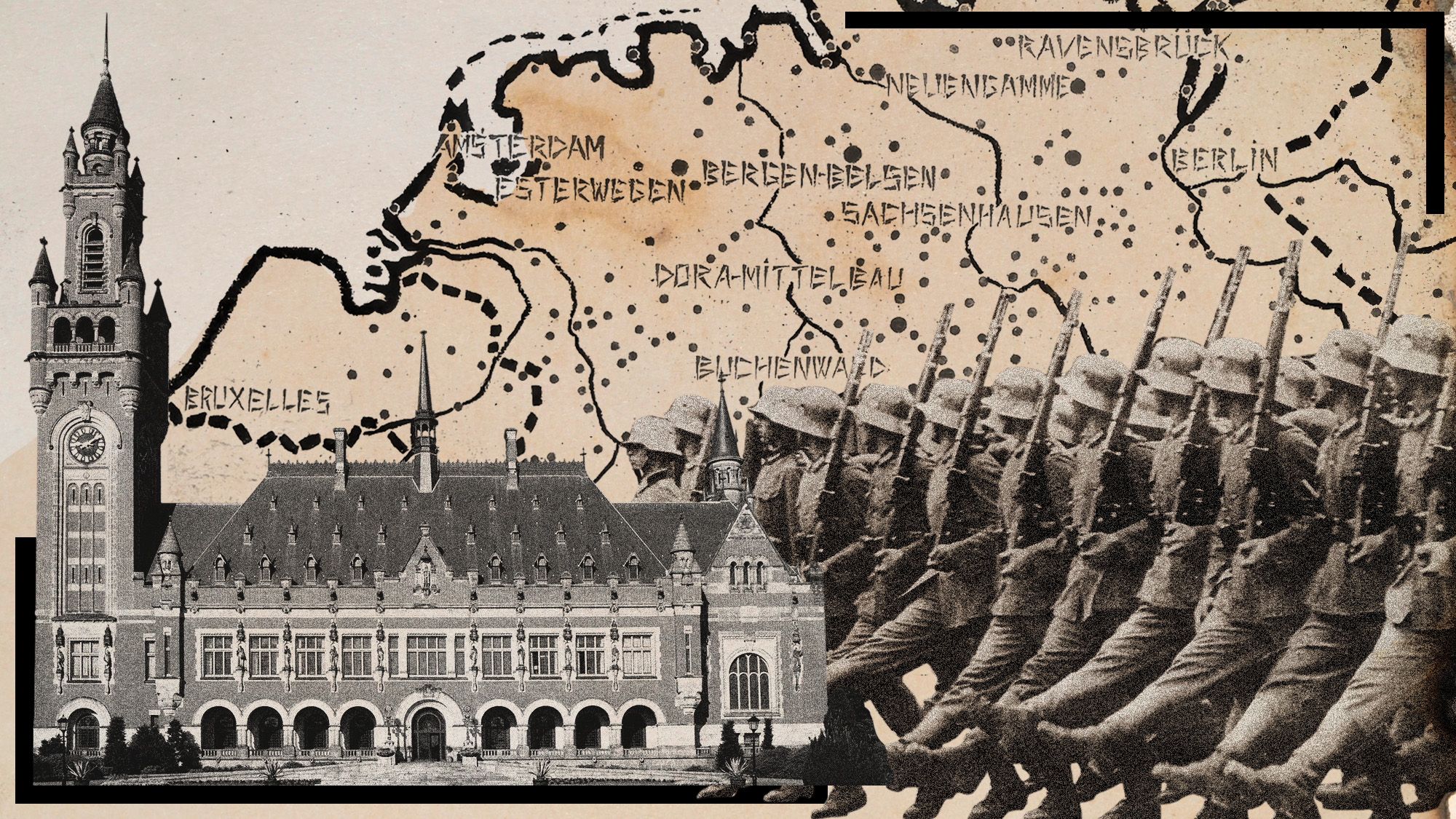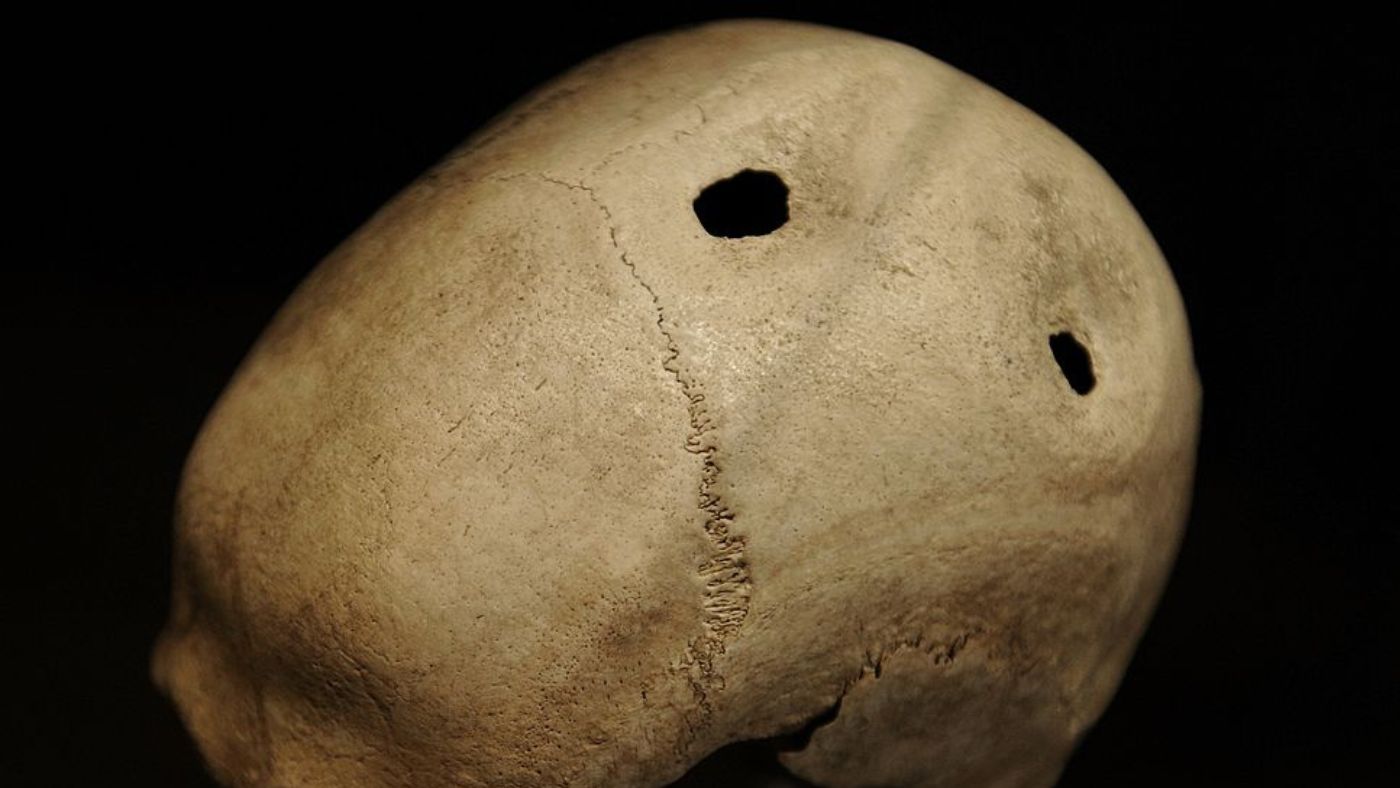What is Zionism?
The controversial religious and political movement re-established Israel as the central location for Jewish identity

A free daily email with the biggest news stories of the day – and the best features from TheWeek.com
You are now subscribed
Your newsletter sign-up was successful
Zionism is a religious and nationalist ideology that facilitated the creation of a Jewish state in modern-day Israel based on both ancestral and biblical ties to the region.
The current Zionist movement began in eastern and central Europe in the 19th century but is in many ways a “continuation of the ancient attachment of the Jews and of the Jewish religion to the historical region of Palestine, where one of the hills of ancient Jerusalem was called Zion”, Encyclopaedia Britannica says.
What is the history of Zionism?
The Week
Escape your echo chamber. Get the facts behind the news, plus analysis from multiple perspectives.

Sign up for The Week's Free Newsletters
From our morning news briefing to a weekly Good News Newsletter, get the best of The Week delivered directly to your inbox.
From our morning news briefing to a weekly Good News Newsletter, get the best of The Week delivered directly to your inbox.
In AD70, the Romans destroyed the Second Temple in Jerusalem, a highly important site in Judaism, kickstarting the spread of a Jewish diaspora across the world and causing a significant decline in the region’s Jewish population.
Islam was brought to Palestine during the Muslim conquests of the seventh century, and was solidified as the region’s de facto religion by the Ottoman Empire from the 17th century onwards.
The following century saw the rise of the Haskala, or “Jewish Enlightenment”, movement, which “urged Jews to assimilate into Western secular culture”, says Encyclopaedia Britannica.
However, opposition to the movement emerged in the late 1800s, led by Theodor Herzl, a Jewish journalist, philosopher and writer from Austria-Hungary who countered that such assimilation could never be achieved in the face of rapidly rising anti-Semitism in Europe.
A free daily email with the biggest news stories of the day – and the best features from TheWeek.com
In 1897, Herzl convened the first Zionist Congress in the Swiss city of Basel, at which he stated that “Zionism strives to create for the Jewish people a home in Palestine secured by public law”.
The Balfour Declaration of 1917 lent British support to the establishment of a Jewish national home in Palestine, which was under the control of the Ottoman Empire at the time. The declaration was included in the 1922 United Nation Mandate for Palestine, paving the way for mass migration to the region for Jewish settlers.
In the years before and during the Second World War, “thousands of European Jews fled to Palestine or other regions to escape hostility”, History.com says.
But it was the mass extermination of around six million Jews during the Holocaust that led Zionist leaders to actively promote the idea of an independent Jewish nation.
In 1948, Israel declared independence from the UK.
What do Zionists believe?
Zionism is a broad ideology based on the idea that Jews “deserve their own state in their ancestral homeland, Israel, in the same way the French people deserve France or the Chinese people should have China”, explains Vox.
In the Hebrew Bible, the word Zion refers to Jerusalem, and the movement is identified with the city and the land that surrounds it.
Although Zionists all agree that Israel should exist, they’ve “long disagreed on what its government should look like”, says Vox.
“In the most general terms, the Zionist left, which dominated the country’s politics until the late 1970s, is inclined to trade Israeli-controlled land for peace with Arab nations, wants more government intervention in the economy, and prefers a secular government over a religious one,” the news site continues.
However, the “Zionist right, which currently enjoys commanding positions in the Israeli government and popular opinion, tends to be more skeptical of ‘land-for-peace’ deals, more libertarian on the economy, and more comfortable mixing religion and politics”.
Why is it controversial?
Zionism has become increasingly controversial over the past a century owing to its perceived connection to Jewish supremacy and usage as an excuse to uproot and curtail the rights of Palestinian citizens.
Some critics claim Zionism is “an extreme ideology that discriminates against non-Jews”, reports History.com, which notes that, for instance, “under Israel’s 1950 Law of Return, Jews born anywhere in the world have the right to become an Israeli citizen, while other people aren’t granted this privilege”.
In an article for Al Jazeera, Israeli-American doctor of psychology Yoav Litvin claims that Zionism “is a racist and settler colonialist movement, which opportunistically coopts aspects of Judaism in an attempt to justify its criminal practices of apartheid and genocide of indigenous Palestinians”.
What do its advocates argue?
Defenders of Zionism point to the pervasiveness of Zionism throughout the Israeli population.
The American Jewish Committee says that anti-Israel rhetoric has often gone “beyond simple criticism of the country’s policies and crossed the line into demonisation” of Jews as a whole. This demonisation has seen anti-Zionists “declaring Israel a racist state, holding it to higher standards than are applied to any other nation, or drawing analogies between Israel and the Nazi regime”, according to the advocacy group.
As The Times of Israel notes, the European Union “maintains that Israel’s presence in the West Bank and East Jerusalem is unique, legally speaking, but consistently refuses to explain exactly how it differs from, say, Turkey’s occupation of Northern Cyprus or [the] Moroccan presence in Western Sahara”.
Despite the various claims and arguments put forward by Zionists, however, not all Israelis or Jews support the ideology.
For example, Haredi Jews, of whom there are almost a million in Israel alone, do not believe in Zionism and reject the State of Israel. Instead, they believe that the true Israel can only be reestablished with the coming of the Messiah.
-
 Political cartoons for February 15
Political cartoons for February 15Cartoons Sunday's political cartoons include political ventriloquism, Europe in the middle, and more
-
 The broken water companies failing England and Wales
The broken water companies failing England and WalesExplainer With rising bills, deteriorating river health and a lack of investment, regulators face an uphill battle to stabilise the industry
-
 A thrilling foodie city in northern Japan
A thrilling foodie city in northern JapanThe Week Recommends The food scene here is ‘unspoilt’ and ‘fun’
-
 The origins of the IDF
The origins of the IDFIn Depth The IDF was formed by uniting Zionist paramilitary groups, WWII veterans and Holocaust survivors
-
 Newly publicized Dutch archives force families to confront accusations of Nazi collaboration
Newly publicized Dutch archives force families to confront accusations of Nazi collaborationUnder the Radar The archives were available to researchers but only recently became publicly accessible
-
 Haredim: Israel's ultra-Orthodox Jews now facing conscription
Haredim: Israel's ultra-Orthodox Jews now facing conscriptionThe Explainer Religious community pays few taxes, receives vast subsidies and has avoided military service, provoking ire of wider society
-
 Rare brain surgery performed 3,500 years ago
Rare brain surgery performed 3,500 years agoSpeed Read Archaeologists discover punctured skull dating back to 1500BC below floor of Israel home
-
 What life was like in Iran before the 1979 Islamic revolution
What life was like in Iran before the 1979 Islamic revolutionIn depth What led to the overthrow of the Shah and are there parallels between then and now?